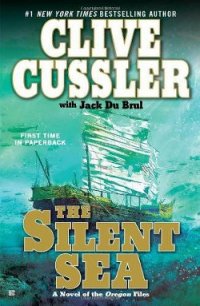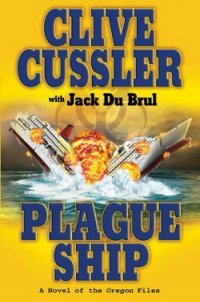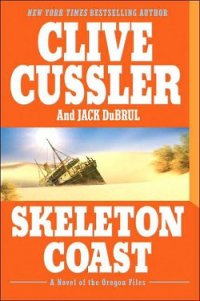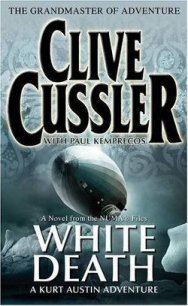Dark Watch - Cussler Clive (книга бесплатный формат .txt) 📗
Equipment that couldn’t pass an international customs inspection would have to be improvised once they were in Switzerland, but Juan didn’t think it would be a problem. He had numerous contacts in and around Zurich from his days with the CIA, and they only needed a couple of guns. They could mix the explosives themselves with household chemicals, and everything else they would need was either available for rental or sale.
With his team twenty-four hours behind him, Juan’s first priority was to find a safe house and reconnoiter the route between Regensdorf prison and the courthouse downtown.
Twenty minutes after clearing Customs, he was behind the wheel of a rented Mercedes ML-500 sport utility vehicle. He doubted he’d need the truck’s off-road capabilities, but it was anonymous enough in the affluent city, and it came equipped with a GPS mapping system. It was a beautiful spring morning, so he had the windows rolled down and the sunroof retracted.
Unlike Tokyo, Cabrillo enjoyed Zurich, with its seamless blend of old and new. Baroque and modern architecture stood side by side, not in competition but in a calming harmony. It was in Zurich that he’d first slept with a contact while working for the Company. She was a low-level Russian embassy employee who couldn’t provide any valuable information, but that didn’t make Juan feel any less like James Bond. The memory brought a smile as he circled the city on the ring road and found the exit that would take him to the prison. The safe house would have to wait until he had found the best spot for what he had in mind.
Just before he reached the turnoff for the prison, Juan turned around and headed back into the city. No sense in showing off the car to the guards at the entrance gate since he was pretty sure he’d have to cover this route a few times before he knew where his team would stage their strike. He drove straight to the courthouse where Rudolph Isphording was playing star witness in the trial of the century.
The streets around the courthouse were cramped and full of traffic, mostly because there was a new building under construction next door, and the trucks hauling materials to and from the work zone blocked intersections. The new building was still just a steel frame with concrete slab floors stacked seven high. A tower crane lorded over the construction site, its horizontal boom arm able to swing far over the plywood and chain-link fence ringing the construction site. Juan paused at a red light to watch it hoist a bundle of I-beams into the air and was startled into motion when the driver behind him gave a polite tap on his horn. The light had changed. He waved an apology and drove on.
He tracked back and forth between the prison and the courthouse six more times, taking six different routes. If he were in charge of the security team that drove Isphording into the city for the trial, he would select a different route at random each day, making it much more difficult for someone to attack the armored caravan. But the problem was that the destination was the same every time. The closer the van came to the courthouse, the more predictable and vulnerable it became.
Juan found a parking spot a few blocks from the court and spent the next two hours walking the neighborhood, sipping black coffee from a Starbucks. He felt he should have bought his coffee from a local vendor instead of an international franchise, but it had been months since he’d had a taste of his favorite brew. He made a mental note to contact the company’s Seattle headquarters and see if it was possible to buy their special equipment for the Oregon.
While traffic was heavy all around the courthouse and the adjacent construction site, the main street behind the two buildings was relatively quiet. He would need to post people here for a few days to get a better handle on the traffic patterns if this was the location they would use. So far everything looked right. He only needed to make a few changes to his original plan.
A little after noon he rented an apartment in a four-story building about six blocks from the courthouse. He explained to the leasing agent that he and a group of American lawyers were in Zurich for several months as part of an ongoing lawsuit against an insurance company. The apartment had three bedrooms and an office. The furniture was a bit threadbare, but the kitchen had been recently remodeled, and the bathroom contained a tub big enough to swim laps. Most important, it was on the building’s top floor and Juan could tell that, if they needed it, they could gain roof access from the back alley fire escape. He’d been forced into a six-month lease, which meant he’d need to keep the unit occupied well after the job was done in order to deflect suspicion.
Too often a criminal would establish himself in a neighborhood, stay close to the bank he planned to rob, then vacate the area as soon as the crime had gone down. A police canvass a couple days later would reveal the person had left, and the cops had themselves a solid lead. By rotating a few Corporation operatives or outside contractors through the apartment for a couple months, no one would suspect anything was amiss. It was this level of detail that ensured the Corporation’s anonymity as well as its success.
After making calls to procure weapons, Juan had nothing to do but wait for his team to arrive. He grabbed a meal at a nearby restaurant. He hadn’t planned on polishing off the carafe of wine, but each sip seemed to work magic on the tension in his shoulders and neck. Juan rarely worried about his own safety; it was his people who concerned him.
He’d always had a leadership style of commanding from the front, to never ask a subordinate to do what he was unwilling to do himself. For that, his people gave him their loyalty. In return, Juan knew he could trust them in any situation. But it never got easier, asking them to put themselves in harm’s way. Yes, each member of the Corporation shared in the profits of their work. Each was a millionaire at the very least, but like he’d discussed with Max back on the Oregon, this wasn’t about money, not really. It was about the dedication to doing the right thing. It was an ideal that drove Juan and his people, an ideal that someone had to face the new dangers of the twenty-first century.
People were needed on the ramparts of freedom to stand the dark watch against any and all who were against it.
His team had taken it upon themselves to become those gatekeepers, those standers of the dark watch. And it seemed each time Juan read a newspaper or caught the news from a satellite feed and learned of some new atrocity, he realized they would need to stand their posts for a long time to come.
Dr. Julia Huxley was the last to arrive the next day. Rather than have her stay in the safe house, Juan had told her to take a hotel room near Zurich’s famed Bahnhofstrasse, the bank- and shop-lined street that as much identified the city as Fifth Avenue did New York or Rodeo Drive did Beverly Hills. Although Julia had proven herself on several covert operations, her primary function was as medical officer. Juan would have much rather used Linda Ross for this job, but she wasn’t the right body type or height for what Juan had in mind, nor were any of the other half-dozen women aboard the Oregon. Julia had readily agreed to come to Zurich, yet Juan made sure she was as insulated as possible from the rest of the team.
He barely recognized her when Hali Kasim escorted her into the safe house living room. Gone were her soft, dark eyes. She wore tinted contacts that made them look watery blue behind large-framed glasses. Her customary ponytail was hidden under a wig of gray hair that curled around her head like a thinning bush. Julia normally had the curves of a 1950s pinup model, but her travel-wrinkled clothes now hid the doughy body of a prison matron. The frown lines across her forehead were deep enough to be considered corrugation, and two laugh lines alongside her mouth were like trenches.




